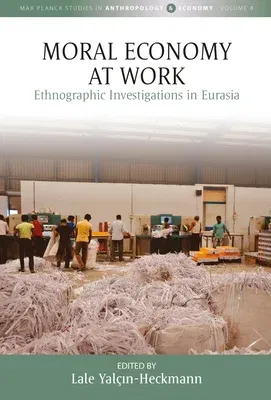Moral Economy at Work: Ethnographic Investigations in EurasiaHardcover, 15 October 2021

Qty
1
Turbo
Ships in 2 - 3 days
In Stock
Free Delivery
Cash on Delivery
15 Days
Free Returns
Secure Checkout

Part of Series
Max Planck Studies in Anthropology and Economy
Print Length
208 pages
Language
English
Publisher
Berghahn Books
Date Published
15 Oct 2021
ISBN-10
180073235X
ISBN-13
9781800732353
Description
Product Details
Book Format:
Hardcover
Country of Origin:
US
Date Published:
15 October 2021
Dimensions:
22.86 x
15.49 x
1.78 cm
ISBN-10:
180073235X
ISBN-13:
9781800732353
Language:
English
Location:
New York, NY
Pages:
208
Publisher:
Weight:
430.91 gm